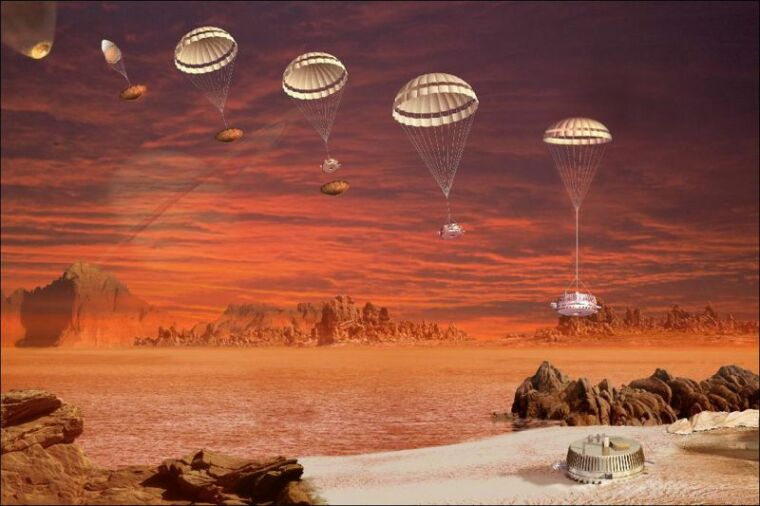In Star Trek scenario scientists suggest colonizing outer space with bacteria on dead astronauts

BATON ROUGE, La. (Christian Examiner) – In what sounds like the plot from the 1982 movie Star Trek: The Wrath of Khan, where a capsule called "Genesis" planted new life on barren planets, a scientist who studies the survival of microbes in extreme environments has suggested other planets could be colonized with bacteria hitchhiking millions of miles on the bodies of dead astronauts.
Gary King of Louisiana State University said in an interview with Astronomy Magazine that a set of circumstances could be constructed to help microbes survive the deep space environment so they could be delivered onto another world.
"We've pulled microbes out of permafrost, and there we're talking about organisms surviving around one million years in suspended animation. Especially if the trip is somewhere close, like to Mars, bacterial spores in the human body will survive for sure," King told the magazine.
When you talk about one-million-plus years with little radiation shielding, then I'd say we're talking about a very limited possibility of microbial survival. But I won't say impossible, if you only need one of the vast number of microbes on the human body to survive the trip.
"It's also possible that other, non-sporing bacteria could survive as well. I'm thinking about microbes like Deinococcus radiodurans, which we know can survive low levels of water and high amounts of ionizing radiation."
Since the trip to another planet would be so long, however, there would have to be some method of shipping a dead astronaut's corpse – a proper storage unit – and a short flight time (because of the amount of radiation it would be exposed to in deep space).
"When you talk about one-million-plus years with little radiation shielding, then I'd say we're talking about a very limited possibility of microbial survival. But I won't say impossible, if you only need one of the vast number of microbes on the human body to survive the trip," King said.
He also said would also have to be some method of safely landing the corpse on a planet to avoid it being burned up on entry into the planet's atmosphere.
Such possibilities are rife with religious implications, chief among them the rejection of the idea that life was created from nothing by God, a tenet shared among both Jews and Christians. And although a human plan to colonize another planet could spell disastrous changes for the other world, scientists believe that enough biological material ejected in space by humans might do the trick if it landed in "a shallow pool" on a receptive world.
Lee Cronin, a chemist who studies the genesis of life at the University of Glasgow, told the magazine the bodies could be viewed "as a sort of starter-pack of chemistry to bootstrap the [genesis] of new life. ... But you'd need to consider a few factors."
"First, how many corpses would you actually need to get onto a planet to make sure you statistically have enough organics to get things moving?" Cronin asked.
"Imagine a huge planet with an ocean, if you have just a single corpse that gets dissolved in a second or two and that chemistry gets spread very, very thinly. Well, it's very difficult to imagine that corpse might help the process along," he told the magazine.
Cronin, in a vein reminiscent of a science fiction film, said an entire, doomed crew would provide enough biological material to get started.
"And who knows," Cronin said. "Hypothetically speaking, it's not impossible to imagine that life on Earth could have started through a similar process."